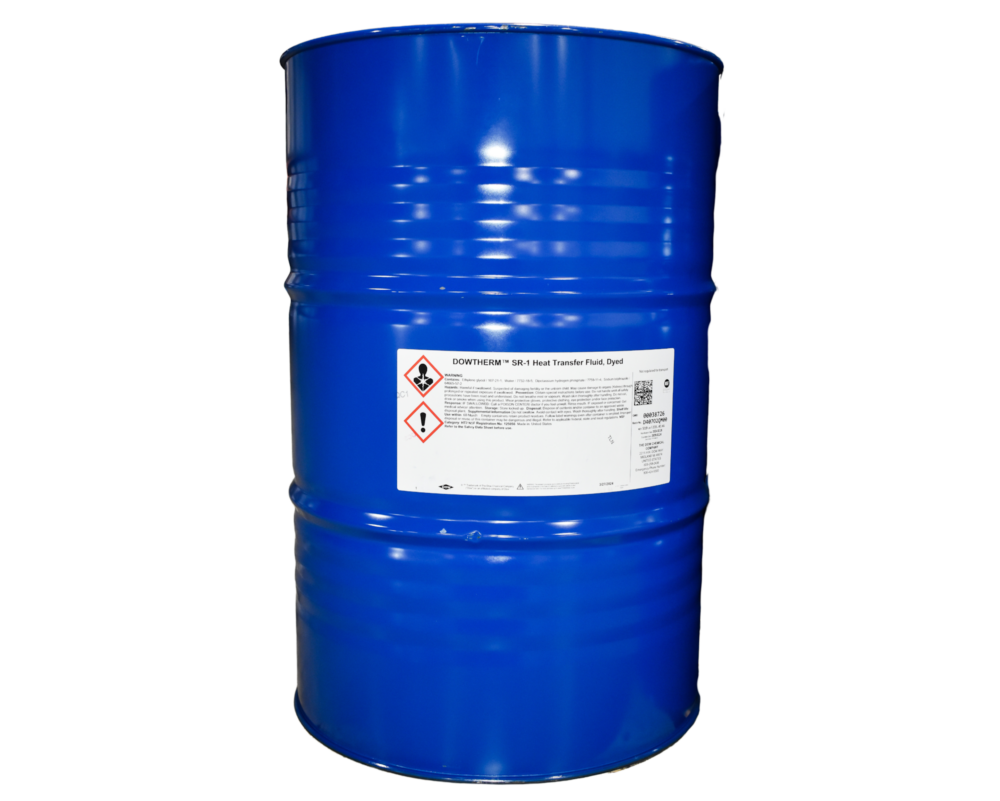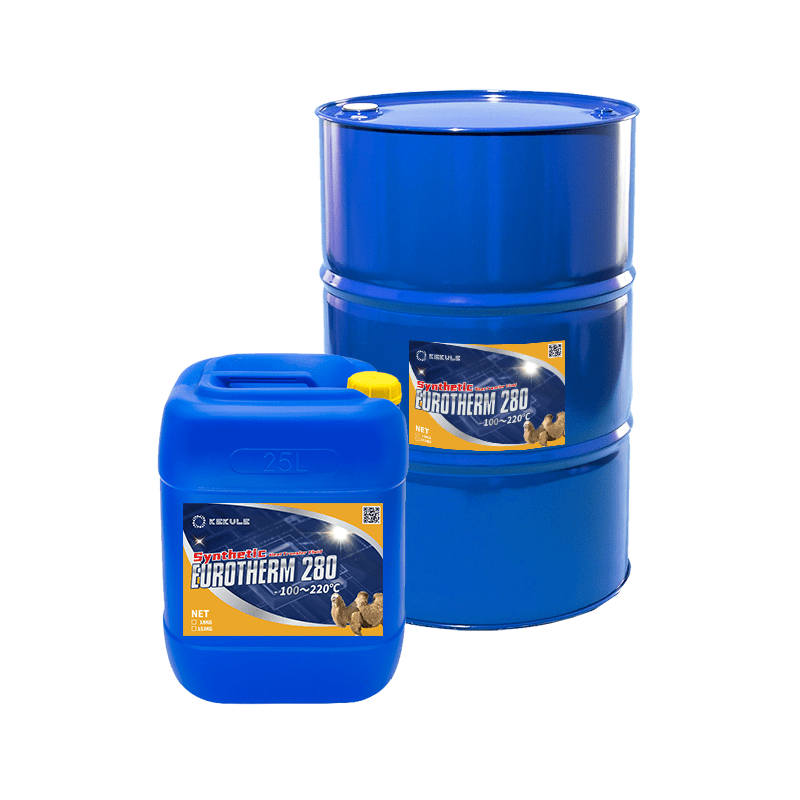How Heat Transfer Fluid Influences the Effectiveness of HVAC Equipments
How Heat Transfer Fluid Influences the Effectiveness of HVAC Equipments
Blog Article
Recognizing the Uses of Warm Transfer Fluid in Industrial Applications
In the dynamic landscape of commercial applications, warmth transfer liquids (HTFs) are crucial for keeping precise thermal guideline, essential to enhancing operational effectiveness and product top quality. From the complexities of chemical processing to the robust demands of power generation, HTFs are central to making sure stable and reliable warm exchange.
Duty in Chemical Handling
In chemical processing, heat transfer fluids play a critical role in maintaining precise temperature control, which is essential for optimizing response rates and ensuring item quality - heat transfer fluid. These fluids are essential in promoting effective warmth exchange in between process devices, therefore making it possible for the regulation of thermal problems within activators, distillation columns, and other critical apparatus. Their ability to keep security under differing thermal tons and ecological problems makes them indispensable in chemical manufacturing
The selection of an appropriate warm transfer fluid is determined by factors such as thermal conductivity, details warm ability, viscosity, and chemical compatibility with the process materials. High-performance fluids permit rapid heating & cooling, enhancing the performance of endothermic and exothermic reactions. Additionally, their thermal security lessens the risk of deterioration or contamination, which can cause equipment fouling and reduced process performance.
In addition to temperature guideline, these fluids contribute to safety by protecting against getting too hot and lowering the possibility for thermal runaway responses. By giving regular thermal monitoring, heat transfer fluids enhance procedure dependability and can lead to substantial power savings. As chemical processes become progressively complicated, the importance of picking and maintaining ideal warm transfer liquids can not be overstated.

Power Generation Applications
Moving from chemical processing to power generation, heat transfer liquids assume a vital duty in the production of power. In power generation applications, these liquids are important in maintaining optimal thermal efficiency and making sure the trusted procedure of power plants. Different kinds of power generation facilities, including fossil fuel-based plants and focused solar energy (CSP) systems, depend heavily on warm transfer fluids for effective power conversion.
In nonrenewable fuel source power plants, heat transfer fluids are utilized to move warm from combustion gases to water in central heating boilers, creating steam that drives turbines. This process needs fluids with high thermal stability and superb warmth transfer buildings to stand up to extreme temperature levels and stress. Likewise, in CSP plants, warm transfer fluids distribute via solar batteries, absorbing solar power and moving it to a central receiver where it is used to produce heavy steam. The steam after that powers generators to create electrical energy.
The choice of warm transfer liquid in these applications is vital, as it impacts the plant's performance, security, and ecological impact. Artificial oils, molten salts, and various other specialized fluids are frequently used, selected based upon their thermal stability, warmth ability, and compatibility with system materials.
Effect On Food and Beverage Sector

In addition to improving product high quality, warmth transfer liquids add to functional performance by lessening power consumption and reducing procedure times. Their thermal security and high heat read this capacity permit rapid home heating the original source and cooling down cycles, bring about improved throughput and cost-effectiveness. Moreover, making use of food-grade warmth transfer fluids, which conform with stringent security requirements, makes sure that there is no threat of contamination, thus securing public wellness.
The versatility of warmth transfer fluids allows their application throughout a variety of food and beverage processes, from milk and confectionery to brewing and bottling. By maximizing temperature control, these fluids play a crucial function in satisfying the advancing demands of the food and beverage market while preserving high criteria of top quality and safety.
Value in Manufacturing

An essential aspect of manufacturing processes throughout various markets is the effective monitoring of temperature level, which is where warm transfer fluids show their significance. These liquids play a critical role in maintaining optimal temperatures for varied operations, making certain item top quality, security, and power effectiveness. In markets such as chemical processing, drugs, and plastics, precise temperature control is vital for reactions, curing, and molding processes. Warm transfer liquids promote these regulated environments by absorbing, transferring, and releasing warm as required.
In producing setups, warm transfer fluids contribute considerably to functional efficiency and cost-effectiveness. By lessening temperature level fluctuations, they help in reducing power usage, therefore decreasing functional expenses and boosting sustainability. They improve the life expectancy of devices by protecting against overheating and thermal anxiety, which can lead to costly downtime and fixings.
Additionally, the versatility of warmth transfer liquids enables them to be personalized for certain applications, suiting a broad variety of temperatures and ecological conditions. This adaptability makes certain constant performance, also in one of the most demanding industrial settings. Ultimately, the strategic use of warm transfer fluids equips makers to enhance their procedures, enhance item high quality, and maintain an affordable edge in an ever-evolving market.
Breakthroughs in Warm Transfer Innovation
With innovations in heat transfer modern technology, industries are experiencing transformative enhancements in temperature administration systems. Modern HTFs, such as nano-fluids, exhibit boosted thermal conductivity and Click Here security, which dramatically improve heat exchange procedures.
Furthermore, the assimilation of smart innovation and digital tracking systems has actually transformed warmth administration. Advanced sensing units and IoT gadgets supply real-time information analytics, making it possible for exact control and optimization of warm transfer procedures. This leads to enhanced safety, minimized downtime, and prolonged devices life-span.
Additionally, the introduction of magnetic and phase-change materials in heat transfer applications marks a substantial jump onward. heat transfer fluid. Magnetic fluids, for instance, offer fast warmth dissipation via electromagnetic field control, while phase-change materials effectively store and launch thermal energy throughout stage shifts
These technological strides are not just improving performance in conventional sectors such as chemical processing and power generation but are additionally promoting innovation in arising fields like eco-friendly power systems and digital cooling, leading the way for sustainable industrial operations.

Verdict
Warm transfer fluids are important to commercial applications, providing accurate temperature control and improving functional efficiency. Advances in warm transfer innovation continue to optimize these functions, highlighting the important role of HTFs in industrial procedures.
Report this page